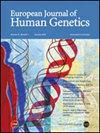Optimising the mainstreaming of renal genomics: Complementing empirical and theoretical strategies for implementation
IF 3.7
2区 生物学
Q2 BIOCHEMISTRY & MOLECULAR BIOLOGY
引用次数: 0
Abstract
To identify and develop complementary implementation strategies that support nephrologists in mainstreaming renal genomic testing. Interviews were conducted with individuals nominated as ‘genomics champions’ and ‘embedded genomics experts’ as part of a mainstreaming project to identify initial barriers and investigate empirical strategies for delivering the project at initial stage. Data were mapped onto implementation science framework to identify complementary theoretical strategies. Interviews with 14 genomics champions and embedded genomics experts (genetic counsellors, nephrologists, renal nurses), identified 34 barriers to incorporating genomic testing into routine care, e.g., lack of long-term multidisciplinary team support and role clarity. In total, 25 empirical implementation strategies were identified such as creating new clinical teams. Using the Consolidated Framework for Implementation Research, 10 complementary theoretical implementation strategies were identified. Our study presents a novel approach complementing empirical strategies with theoretical strategies to support nephrologists in incorporating genomic testing into routine practice. Complementary strategies can potentially address barriers and inform future studies when mainstreaming renal genomics. This process underscored the need for integrating collaborative efforts among health professionals, patients, implementation scientists and the health system to overcome identified challenges to mainstream genomic testing. Future research should explore the applicability of these strategies to support mainstreaming genomic testing in different clinical settings.

优化肾脏基因组学的主流化:补充实施的经验和理论策略。
确定并制定辅助实施策略,支持肾病学家将肾脏基因组检测纳入主流。作为主流化项目的一部分,对被提名为“基因组学冠军”和“嵌入式基因组学专家”的个人进行了访谈,以确定初始障碍并调查在初始阶段交付项目的经验策略。将数据映射到实施科学框架中,以确定互补的理论策略。通过对14位基因组学专家和嵌入式基因组学专家(遗传咨询师、肾病学家、肾脏护士)的采访,确定了将基因组检测纳入常规护理的34个障碍,例如缺乏长期的多学科团队支持和角色明确。总共确定了25个实证实施策略,如创建新的临床团队。利用实施研究的综合框架,确定了10个互补的理论实施策略。我们的研究提出了一种新的方法来补充经验策略和理论策略,以支持肾病学家将基因组检测纳入常规实践。当肾脏基因组学主流化时,互补策略可以潜在地解决障碍并为未来的研究提供信息。这一进程强调需要整合卫生专业人员、患者、实施科学家和卫生系统之间的合作努力,以克服主流基因组检测所确定的挑战。未来的研究应该探索这些策略的适用性,以支持基因组检测在不同临床环境中的主流化。
本文章由计算机程序翻译,如有差异,请以英文原文为准。
求助全文
约1分钟内获得全文
求助全文
来源期刊

European Journal of Human Genetics
生物-生化与分子生物学
CiteScore
9.90
自引率
5.80%
发文量
216
审稿时长
2 months
期刊介绍:
The European Journal of Human Genetics is the official journal of the European Society of Human Genetics, publishing high-quality, original research papers, short reports and reviews in the rapidly expanding field of human genetics and genomics. It covers molecular, clinical and cytogenetics, interfacing between advanced biomedical research and the clinician, and bridging the great diversity of facilities, resources and viewpoints in the genetics community.
Key areas include:
-Monogenic and multifactorial disorders
-Development and malformation
-Hereditary cancer
-Medical Genomics
-Gene mapping and functional studies
-Genotype-phenotype correlations
-Genetic variation and genome diversity
-Statistical and computational genetics
-Bioinformatics
-Advances in diagnostics
-Therapy and prevention
-Animal models
-Genetic services
-Community genetics
 求助内容:
求助内容: 应助结果提醒方式:
应助结果提醒方式:


